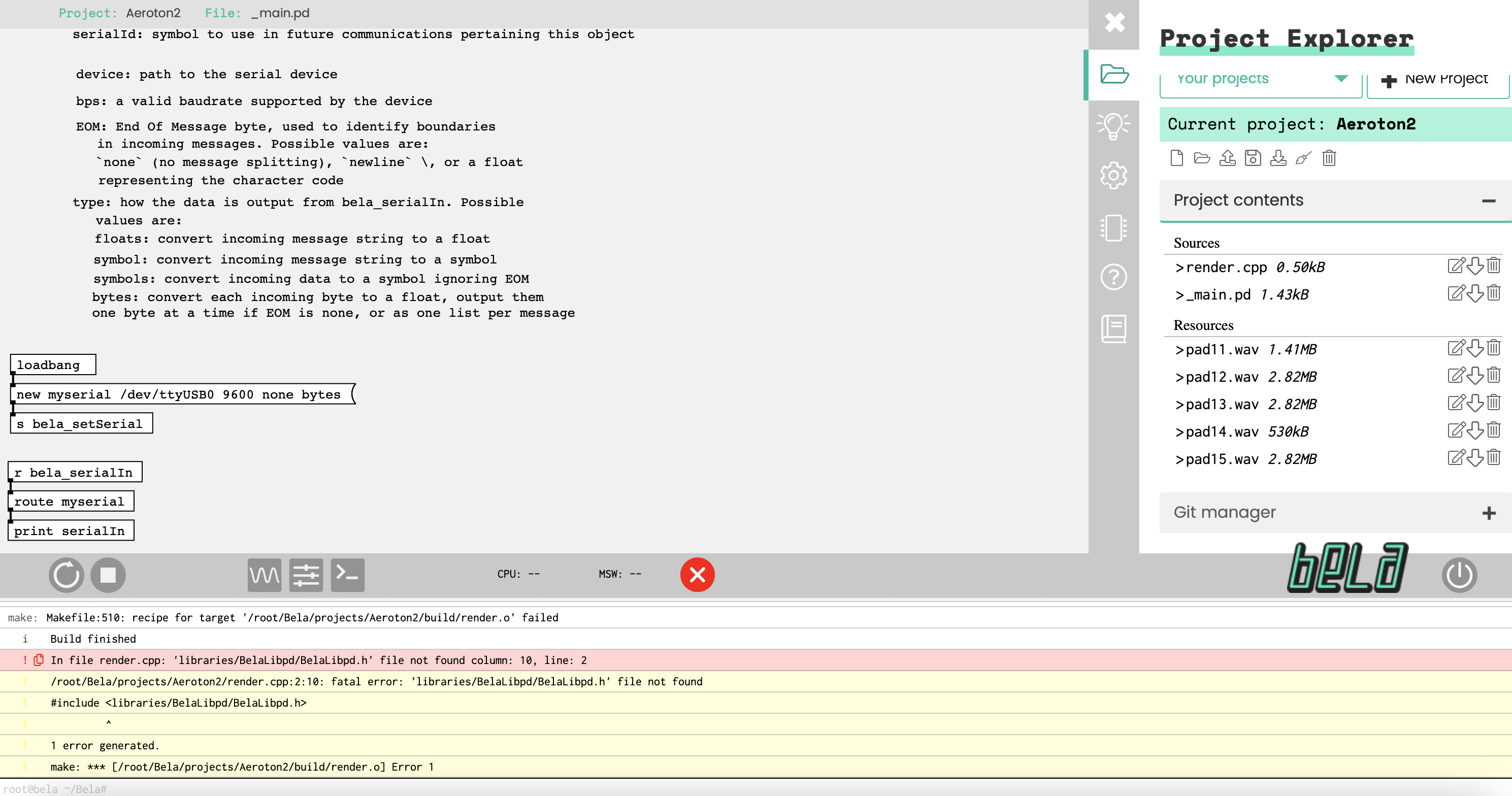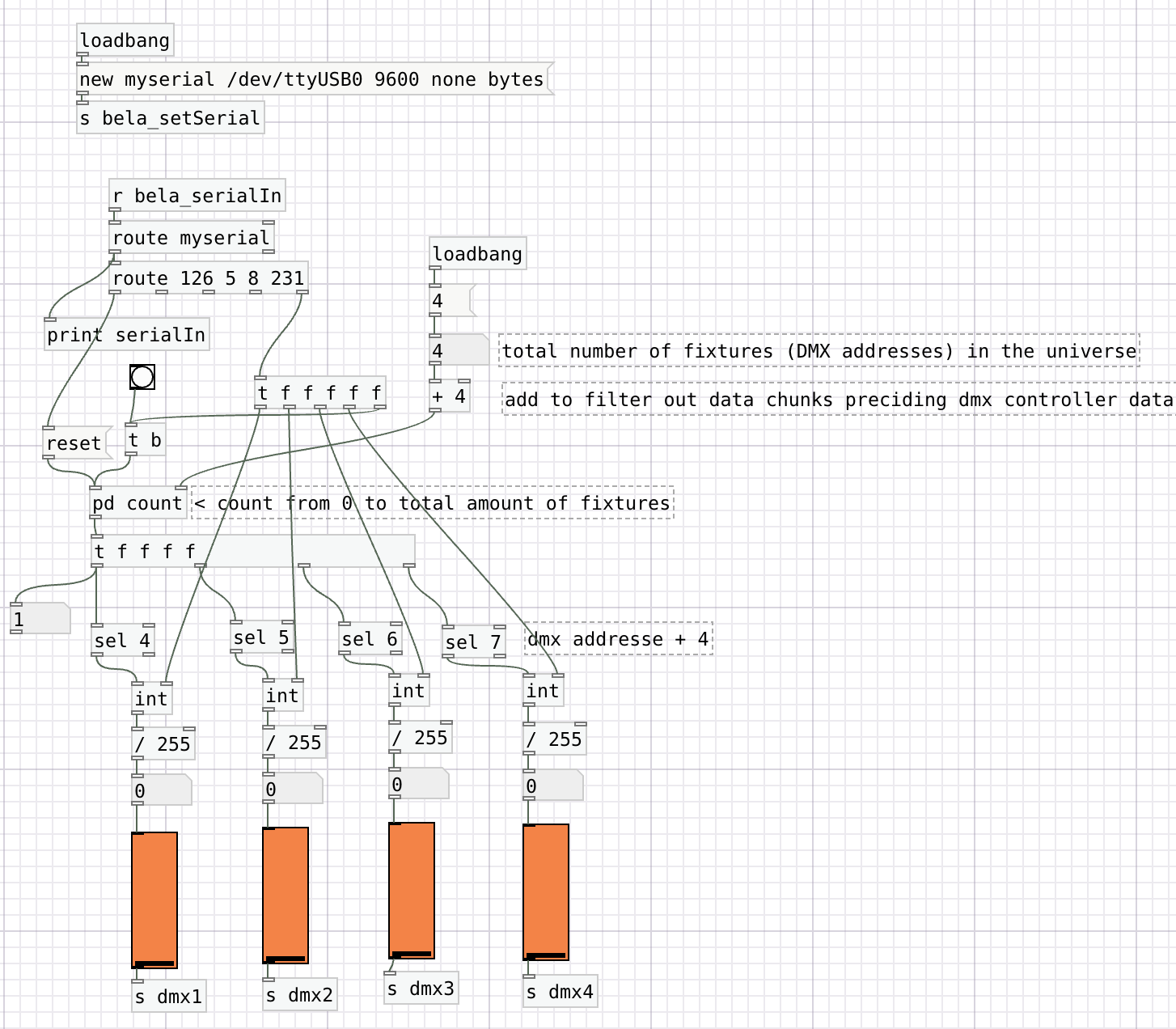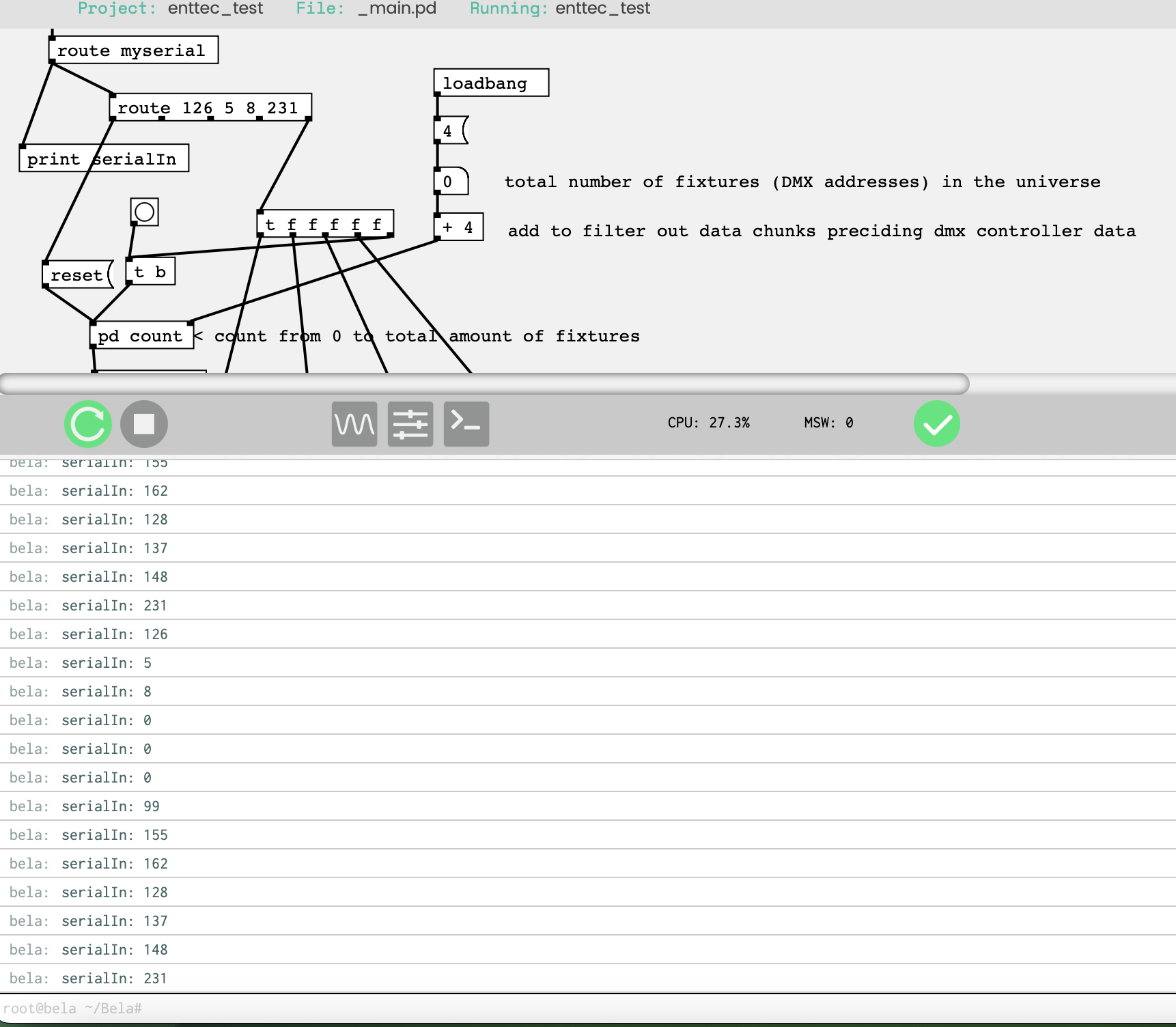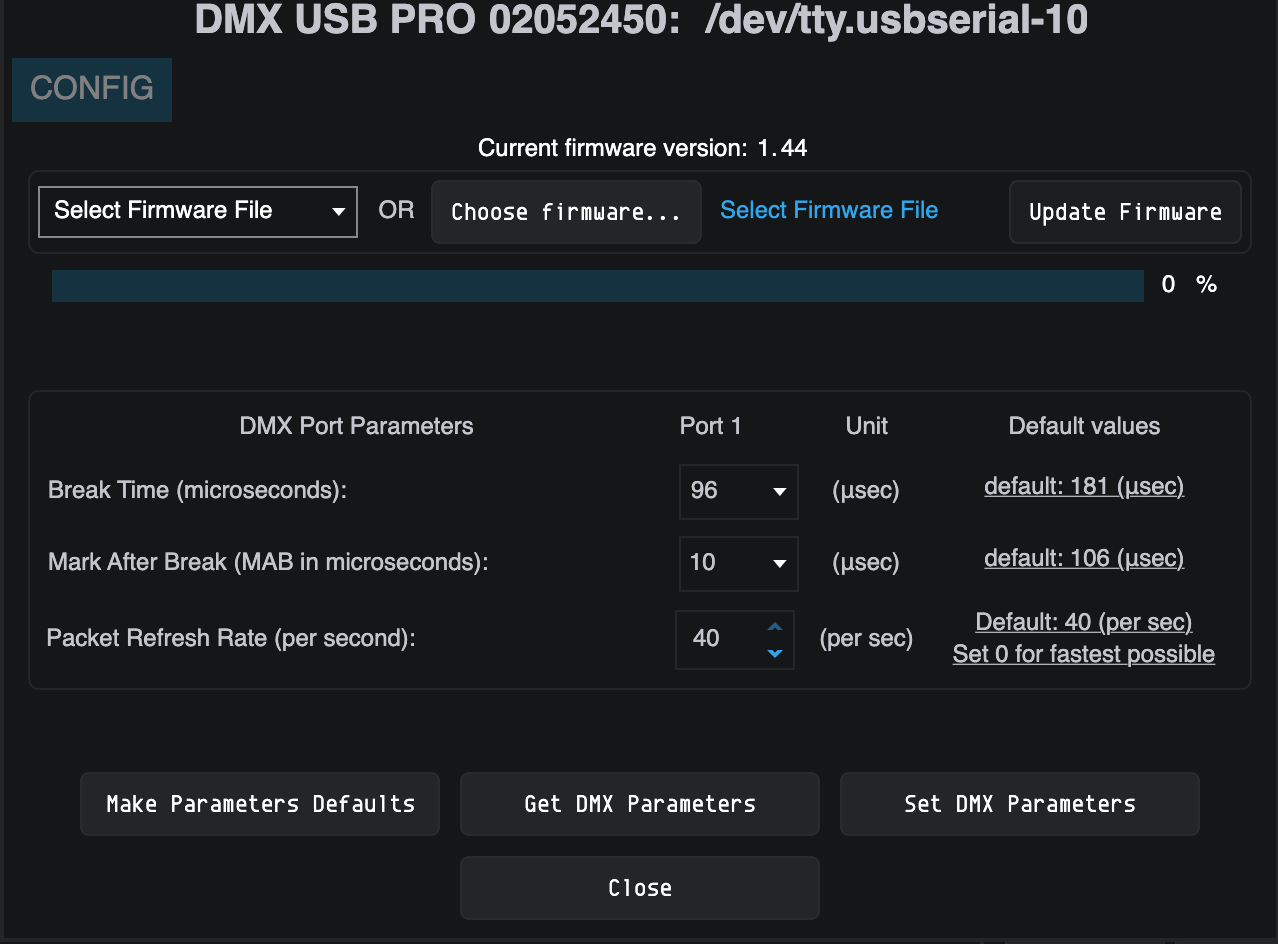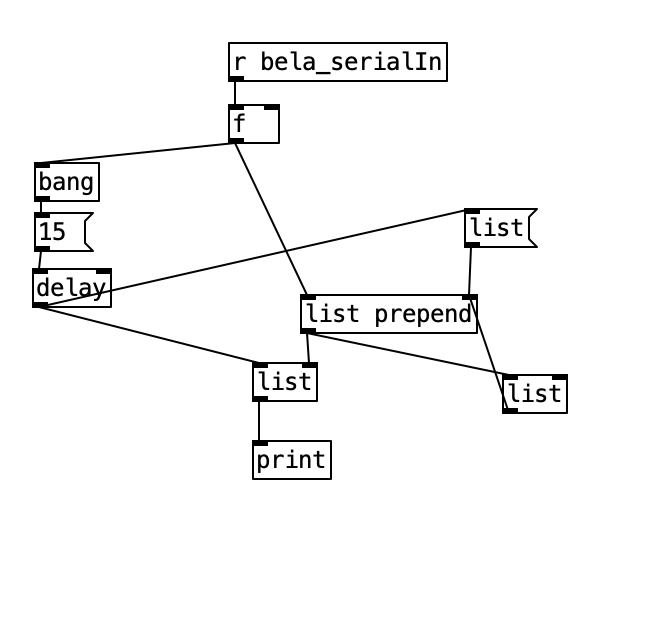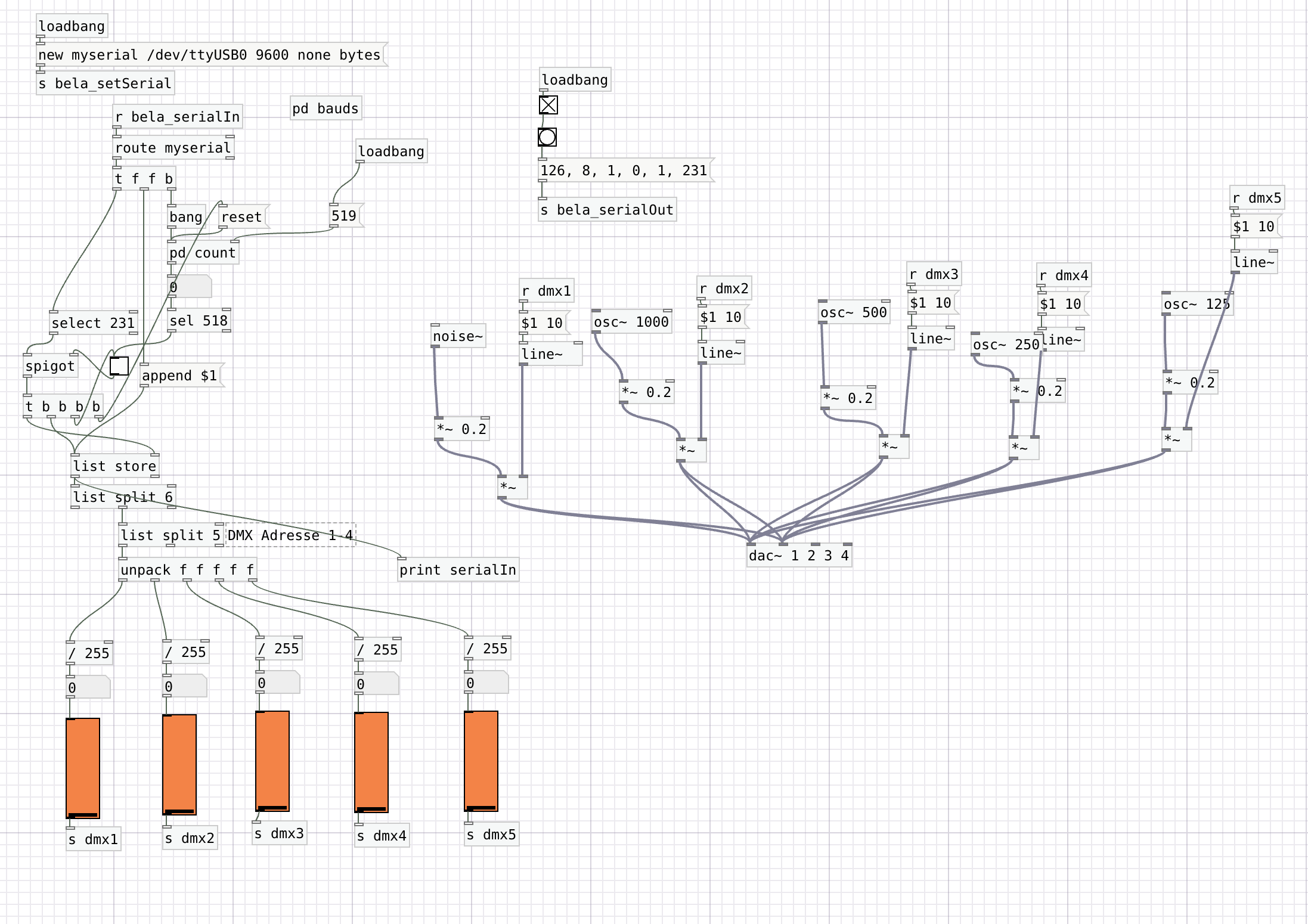I need to control a Pd patch on a bela mini for an installation using DMX. I was wondering if I could use an enttec DMX USB Pro (which I have available) for that task and somehow get the serial data from the enttec via the USB port into the Pd patch on the bela mini.
I've tried a couple of approaches but I am not sure if I am doing the right thing or if it is even possible at all.
So far...based on the information I found in this thread:
https://forum.bela.io/d/2453-how-do-i-make-bela-receive-serial-communication-from-arduino-within-pure-data/13
I 've created a pd patch and a render.cpp file but getting an error message when compiling:
Do I need to install the Pd serial library? And/Or do I need to install a driver for the Enttec?
